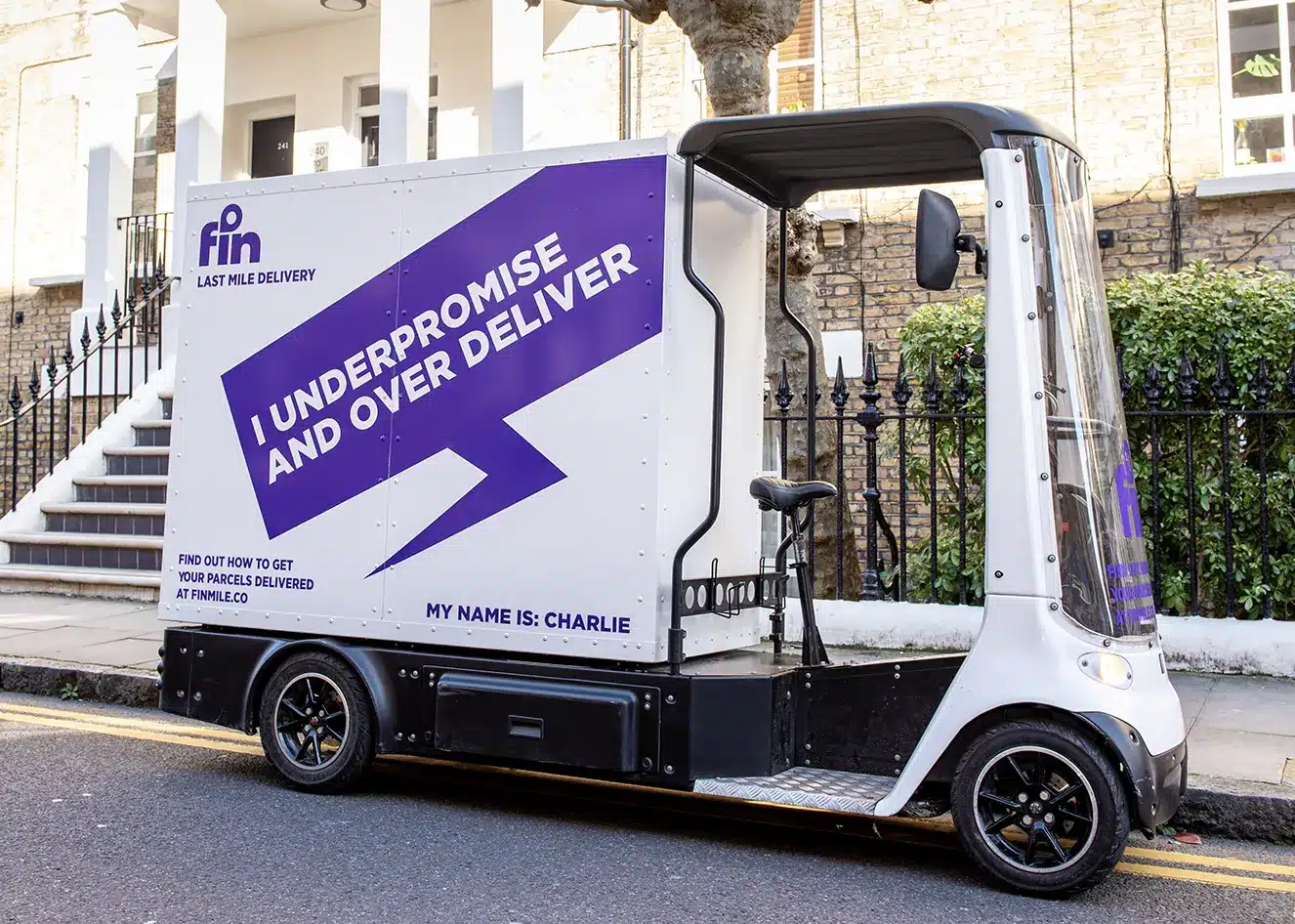Modern cities are grappling with the challenges of urban congestion, pollution, and inefficient logistics. Traditional delivery methods, heavily reliant on fossil-fuel-powered vehicles, exacerbate these problems. Fernhay’s eQuad delivery system offers a sustainable and efficient alternative that addresses these urban challenges head-on.
The Problem with Traditional Delivery Methods
1. Environmental Impact
Traditional delivery vehicles contribute significantly to urban air pollution and greenhouse gas emissions. According to the Environmental Protection Agency (EPA), transportation accounts for nearly 29% of total U.S. greenhouse gas emissions, with a substantial portion coming from medium and heavy-duty trucks used in deliveries. These emissions have dire consequences for urban air quality, leading to health problems such as respiratory diseases and cardiovascular issues among city residents.
2. Traffic Congestion
Urban areas are notorious for their traffic congestion, which not only delays deliveries but also increases operational costs for logistics companies. The inefficiency of navigating crowded streets leads to longer delivery times and higher fuel consumption. Moreover, the time lost in traffic translates into lost revenue and decreased productivity for businesses relying on timely deliveries.
3. Noise Pollution
The noise generated by delivery trucks can be a major disturbance in densely populated areas. This not only affects the quality of life for residents but also contributes to the overall stress levels in cities. The constant hum and honking of traditional delivery vehicles disrupt the tranquility of neighborhoods, affecting both mental and physical well-being.
4. Operational Inefficiencies
Traditional delivery methods often involve large vehicles that are not suited for navigating narrow urban streets. This can result in missed deliveries and increased costs due to the need for re-deliveries. Furthermore, the lack of flexibility in these large vehicles limits their ability to adapt to changing delivery routes and schedules, leading to further inefficiencies.
Fernhay’s eQuad: A Sustainable Solution
Fernhay, a pioneer in sustainable logistics, has developed the eQuad, a four-wheeled electric-assist cycle designed to tackle the inefficiencies of urban delivery systems. The eQuad is not just an innovative solution but a necessary evolution in the way cities handle last-mile deliveries.
1. Environmental Benefits
The eQuad is powered by an electric-assist system, significantly reducing the carbon footprint of deliveries. By utilizing electric power, the eQuad helps in cutting down greenhouse gas emissions, aligning with global sustainability goals. Furthermore, the eQuad’s silent operation drastically reduces noise pollution in urban areas, contributing to a quieter and more peaceful urban environment.
2. Enhanced Maneuverability
One of the standout features of the eQuad is its ability to navigate narrow streets and congested areas with ease. Its compact design allows it to access areas that are typically off-limits to larger vehicles, ensuring timely deliveries even in the busiest parts of the city. This increased maneuverability not only improves delivery efficiency but also reduces the risk of accidents and traffic disruptions.
3. Operational Efficiency
The eQuad’s design is optimized for urban logistics. It can carry a substantial payload while being agile enough to make multiple stops quickly. This efficiency translates to cost savings for businesses and a more reliable delivery service for customers. Additionally, the eQuad’s ability to bypass traffic congestion means that deliveries can be made faster, further enhancing operational efficiency.
4. Health and Safety
The electric-assist system of the eQuad reduces the physical strain on delivery personnel, promoting a healthier work environment. Delivery workers can cover longer distances with less effort, reducing fatigue and the risk of injury. Additionally, its quiet operation and reduced emissions contribute to a safer and more pleasant urban environment for everyone.
The Future of Urban Deliveries
The success of Fernhay’s eQuad in major cities around the world signals a shift towards more sustainable and efficient urban delivery systems. As more cities adopt stringent environmental regulations and as the demand for quick, reliable deliveries increases, the need for innovative solutions like the eQuad becomes evident.
1. Policy Support
Governments and city planners can play a crucial role in this transition by supporting policies that encourage the use of sustainable delivery methods. Incentives for companies that adopt electric-assist cycles and infrastructure improvements to support these vehicles can accelerate the shift towards greener urban logistics. Additionally, creating low-emission zones where only electric or non-polluting vehicles are allowed can further promote the adoption of sustainable delivery solutions.
2. Technological Advancements
Continuous advancements in battery technology and electric-assist systems will further enhance the capabilities of vehicles like the eQuad. These improvements will make electric-assist cycles an even more viable alternative to traditional delivery methods. Innovations such as longer battery life, faster charging times, and increased payload capacity will drive the widespread adoption of these vehicles in urban logistics.
Conclusion
Outdated delivery methods are no longer viable in modern urban environments. The challenges of pollution, congestion, and inefficiency demand innovative solutions. Fernhay’s eQuad represents a forward-thinking approach to urban logistics, offering a sustainable, efficient, and practical alternative to traditional delivery vehicles. By embracing such solutions, cities can move towards a greener, more efficient future. The collective effort of businesses, policymakers, and technology developers is crucial to ensure that urban logistics evolve in a way that benefits both the environment and society at large.

